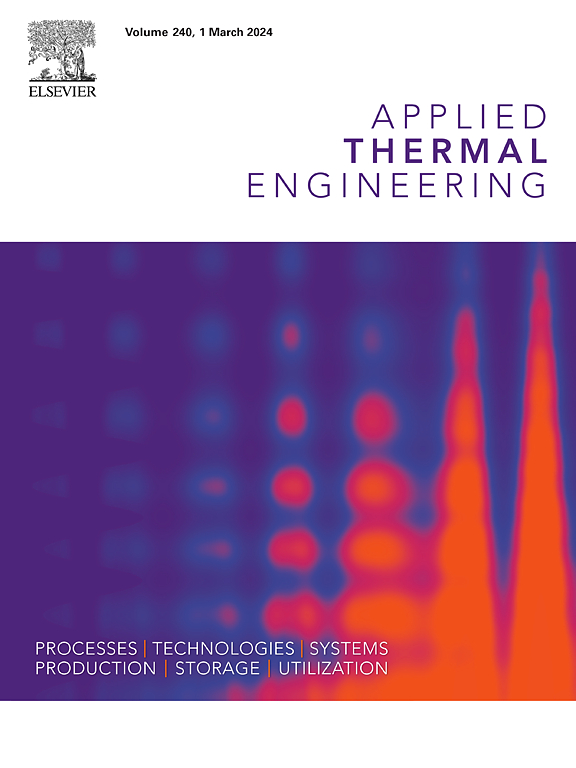General framework for hermetic scroll expander modelling derived from commercial compressor
IF 6.1
2区 工程技术
Q2 ENERGY & FUELS
引用次数: 0
Abstract
The accurate selection and modelling of scroll expanders, inverted from commercial compressors, are critical for optimizing small-scale Organic Rankine Cycle (ORC) systems. In this study, a generalized manufacturer-data-driven framework is proposed for predicting scroll expander performance without requiring prior experimental calibration. The methodology was applied to a Copeland ZR380 scroll compressor converted into an expander, which was experimentally tested in a regenerative ORC system using R1234ze as the working fluid. The model extends a semi-empirical approach originally developed for an open-drive scroll expander operating with HCFC-123, recalculating key parameters based on manufacturer data and thermohydrodynamic property scaling.
The model was validated against experimental data, showing that it underpredicted the expander outlet temperature by 1.5–2 °C and the mass flow rate by approximately 0.2 kg/s, while overpredicting the electric power output by 0.5–1 kWe. These deviations, while present, remain within the accuracy range of similar models that require prior calibration. Expansion losses were analysed using energy cascade analysis, revealing their impact on isentropic work and overall efficiency. Parametric simulations showed that efficiency decreases sharply at low pressure ratios due to over-expansion losses and at high pressure ratios due to under-expansion losses, while shaft power increases with pressure ratio regardless of inlet pressure and rotational speed. By enabling a priori expander selection and performance prediction based solely on manufacturer data, this framework eliminates the need for conventional assumptions of adiabatic operation and fixed isentropic efficiency, offering a practical tool for optimizing expander selection and ORC system design.
求助全文
约1分钟内获得全文
求助全文
来源期刊

Applied Thermal Engineering
工程技术-工程:机械
CiteScore
11.30
自引率
15.60%
发文量
1474
审稿时长
57 days
期刊介绍:
Applied Thermal Engineering disseminates novel research related to the design, development and demonstration of components, devices, equipment, technologies and systems involving thermal processes for the production, storage, utilization and conservation of energy, with a focus on engineering application.
The journal publishes high-quality and high-impact Original Research Articles, Review Articles, Short Communications and Letters to the Editor on cutting-edge innovations in research, and recent advances or issues of interest to the thermal engineering community.
 求助内容:
求助内容: 应助结果提醒方式:
应助结果提醒方式:


